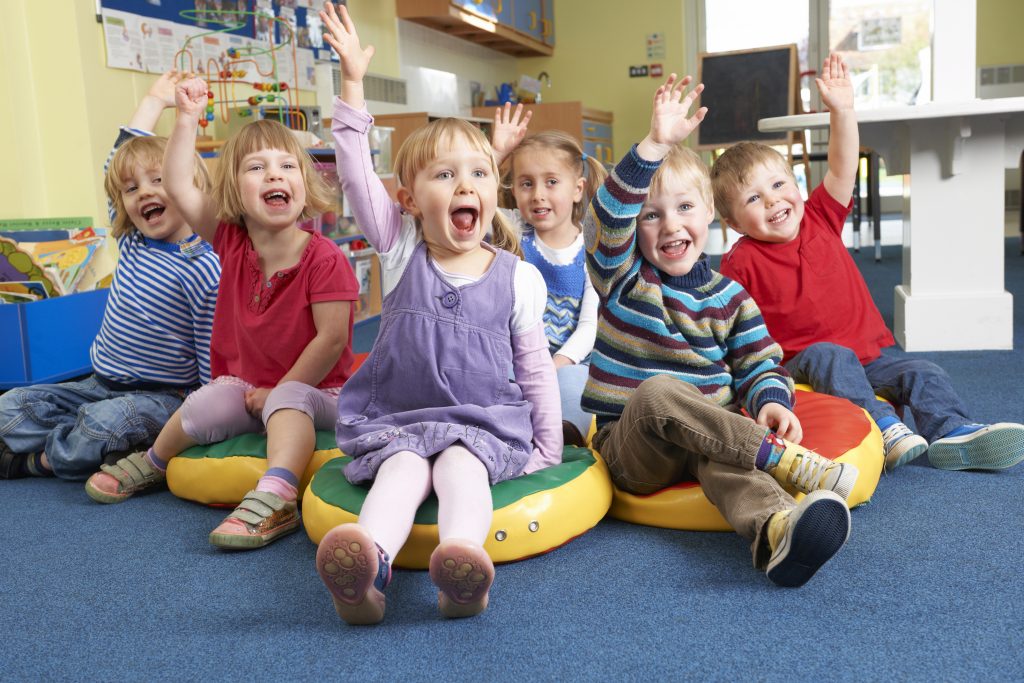Like you, I love my children.
I love my kids, but sometimes they drive me crazy.
I’d like to say I’m joking or exaggerating, but I’m not!
They literally drive me crazy.
In fact, they get on my nerves too. And sometimes I wonder if becoming a mom was the right decision for me.
When I think of all the time I spend screaming, all the money I spend, all the outings I can’t go on and the constant contact with other human beings, I tear my hair out.
My children are often provocative, disruptive, angry and manipulative.
At least, that’s my point of view. That’s my perspective as an exhausted mom.
But when I take them to the park or to friends’ houses, I realize that all children behave in this way.
I even realize that my kids are far from the worst.
What’s the bottom line?
I don’t know if you’ll agree with me, but I’ve concluded two things:
- my children are normal: all parents go through the same difficulties
- they learn and grow by testing limits and making mistakes
In short, I’ve come to understand that all these behaviors allow them to develop their inexperienced little brains.
1. Children push the limits

They push and push and push.
This is how they develop the parts of their brains responsible for sequencing, cause and effect, problem-solving, impulse control, self-control and empathy.
These little scientists discover what works and what doesn’t, what’s allowed and what isn’t, through experimentation (or limit testing).
They also observe us to see what we do when our trigger buttons multiply, which triggers the mirror neurons in their brains, and they store this information to access it later when faced with their own triggers.
2. Children ask hundreds of questions

Have you ever had a child chase you around the house, shouting “Mommy … Mommy … Mommy … Mommy!” only to have nothing to say when you concentrate?
Or a child who always demands the same song or book to go to sleep?
Children love repetition.
It’s familiar and safe, which is comforting in a world that seems to be new and constantly changing for them.
And although it may seem overwhelming, it’s actually a way for them to learn and process information, and to practice the art of speech.
Repetition helps children to speak faster, remember new words and, more generally, enrich their vocabulary.
Toddlers, in particular, have fast-moving brains, and repetition sometimes gives them time to remember what they wanted to say, or to develop their next thought.
As they get older, children may imitate us because they want to be included in the conversation, and this is their way of practicing social language skills.
3. Children lie

That’s what we think.
But it’s really just another moment in development.
Our children are hard-wired to fit into their family system, so they’re constantly evaluating: “Does what I have to say/what I’m doing threaten attachment? Is it safe to give an answer that the adult in my life doesn’t want to hear?”.
When children are young, what appear to be lies are actually how their brains process magical and desired thinking and later, skill-building.
4. Children always need to know why

The dreaded “whys”!
“Mommy, why is it raining? … But why? … Why?”
And before you know it, you’ve just had a fifteen-minute conversation about rain and cloud particles with your four-year-old.
These questions are actually a good sign that their prefrontal cortex is being activated.
This brain muscle is responsible for problem-solving, impulse control, emotion regulation, attention and concentration, predicting consequences and planning.
With every reason, this muscle gets stronger.
Children move mainly from the lower, reactive and emotional regions of their brain, and the “whys” prime the higher, logical regions of the brain, so that over time, the whole brain becomes integrated.
5. Children throw tantrums over anything and everything

For anything and everything.
Turns out it’s for a good reason.
The part of the brain that’s hardwired to detect threats and feelings is fully formed.
The part of the brain responsible for regulating those feelings is immature.
So when our children feel something, it comes out of their bodies in the form of behavior.
Tantrums are an emotional release that help soothe the reactive parts of the brain – a kind of stress relief – so they can access and develop the raw parts of the brain.
Biology is pretty cool like that.
6. Kids are fickle

My daughter does this all the time!
I want my pink dress. You hand her the dress. Then she starts shouting “no, I don’t want that dress”.
Are you serious?
You put it away and take out another one. Then she cries again, “No, I want the rose”.
Are you serious?
I am literally lost in my child’s verbal maze.
While making choices seems pretty standard for us because we make thousands of them a day, kids are still learning to identify options and make decisions.
So why can’t children just make a decision?
Well, their minds are greatly influenced by their emotions, and these are constantly changing (even from one second to the next!).
It’s all part of the developmental process of exercising the prefrontal cortex.
7. Children whine

Sometimes it’s like fingernails on a chalkboard.
They complain about what’s for breakfast. What their sister did. The way the wind blows. About everything.
It can be a real trigger for us parents. But it turns out that whining isn’t manipulation, but an attempt at emotional connection.
If they were babies, they’d cry. But, since they’re not, they give us a high-pitched cry, the whimper.
It’s their body’s way of saying, “Hey, I’m stuck here in my midbrain and I need your help to get to the higher brain”.
8. Children stick to you

When you want a second to answer the phone, pee, make dinner… or really anything, they demand your time and concentration and it becomes diabolical when you can’t.
It’s the same at bedtime, when children prolong bedtime using every trick in the book.
Children are hard-wired to be close to their loved ones, i.e. you.
That’s how they stay safe and survive. And even if we know that moving away from us isn’t an imminent threat, their nervous system doesn’t know that.
So the fact that they hold on, however difficult it may be, is a developmental process and a good sign that they see you as a safe person!
The way we perceive our children influences the way we teach and guide them. And the way we teach and guide them influences the growth of their brain regions.

